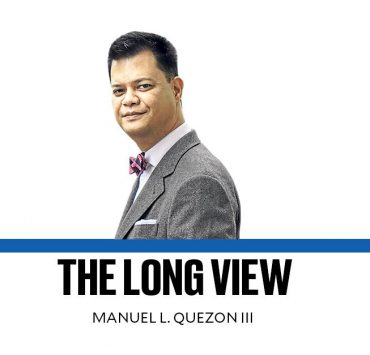Open for business? Europe’s billions on hold

The Marcos administration hit the gas on economic reform—but there’s no room for stalling if it wants to reach the finish line.
As President Marcos Jr. enters the second half of his term, the Philippines stands at a crossroads. The country has taken promising steps toward economic reform and to attract foreign investors—not least from Europe. Yet, the road ahead requires sustained, decisive action.
Legislations such as the CREATE Act, the resumption of PH/EU free trade agreement negotiations, and the liberalization of renewable energy investments have ensured that there is no shortage of goodwill toward the Philippines in European boardrooms.
I hear admiration for Filipino talent, confidence in the domestic market, and strategic value in its location. But veneration is not investment—and goodwill evaporates over time.
Meanwhile, the 20 percent US tariff creates a new layer of uncertainty for investors. To attract new large-scale European investments, the Philippines must do more—and do better. The Marcos administration has shown that it understands the stakes. Now, it must prove it has the political muscle and will to finish what it started.
Maintaining the core of the government’s economic team intact is widely seen as a positive signal of the President’s appetite for continued reform. But investors will also look hard to the Senate and House to do their part by demonstrating willingness to expand and deliver necessary and long overdue reforms with urgency.
Critical legislation—such as the Konektadong Pinoy bill, the Blue Economy bill, and the proposed amendments to the Electric Power Industry Reform Act—would open the economy further and signal genuine, broad-based political commitment toward welcoming international business. These acts need to be put in the fast lane for approval and not fester in committees or be diluted by special interests which all too often have held the Philippine economy back.
Why, some will ask, should the Philippines open itself, while others lock their borders down? Because foreign investments provide a fast track to giving ordinary Filipinos better jobs, higher wages, and a stronger economy. The Philippine economy is, first and foremost, hobbled by low productivity, particularly in agriculture and manufacturing—the sectors that employ most of its workforce. The result is that millions remain stuck in informal jobs leaving families vulnerable, dragging the economy down and hurting public finances by eroding the tax base.
Here, foreign direct investment (FDI) can play a key role by supercharging productivity just as European investments have helped boost the economies of China, Thailand, and now Vietnam. European investors, often governed by strict due diligence and environmental, social, and governance compliance, provide capital, stable jobs, and opportunities for skills development and technology transfer.
Essentials for increasing productivity which can spur the wage growth and economic mobility which Philippine workers need and deserve. This calls for a serious turnaround. Despite excellent efforts by the Anti-Red Tape Authority to bring predictability and transparency to the bureaucracy, too often, the red tape seems laced with superglue. Taxes and customs are sometimes perceived as lottery tickets with dubious winners. Meanwhile many investors have concerns about legal predictability, complex rules, slow-motion approvals, and high logistics costs.
We know the Philippines can. The opening for foreign investments and ownership in the renewable energy sector, streamlining of approvals and welcoming government support made this sector a leading source of FDI overnight. Political will and hard work—not magic, nor luck—made it happen.
The European Chamber of Commerce is unequivocal in its 2025 report with 21 recommendations for improving doing business in the Philippines—streamlining bureaucratic procedures, harmonizing national and local regulations, and digitalizing government services are nonnegotiable for increased European investor confidence.
Improving doing business is not a zero-sum game. Europe had its own rude awakening over failing competitiveness as highlighted in the so-called Draghi report and is poised to spend the next six months taking vigorous action to correct the course. Because no one invests in potential. People invest in results.
The clock is ticking. Without sustained economic reform millions of Filipinos will remain trapped in marginal, low-productivity jobs, earning less than they should. A virtuous cycle—investment spurring productivity, which drives wage growth and inclusive prosperity—is what the Philippines should be aiming for. But it will remain a dream without political will to act decisively.
Mr. President, Members of Congress: Shred the red tape, roll out the red carpet—and we will cut the red ribbons together!
—————-
Franz-Michael Mellbin is the Ambassador of the Kingdom of Denmark to the Philippines and Palau. He has also served as Danish ambassador to Afghanistan, Japan, United Arab Emirates, and Qatar.
—————-
Inquirer Exclusive: This commentary is part of a series of articles in the Philippine Daily Inquirer contributed by European Union Ambassadors to the Philippines, in line with Denmark’s Presidency of the EU Council from July to December 2025. The articles focus on strategic areas of cooperation between the EU and the Philippines. Email: johmed@um.dk

















